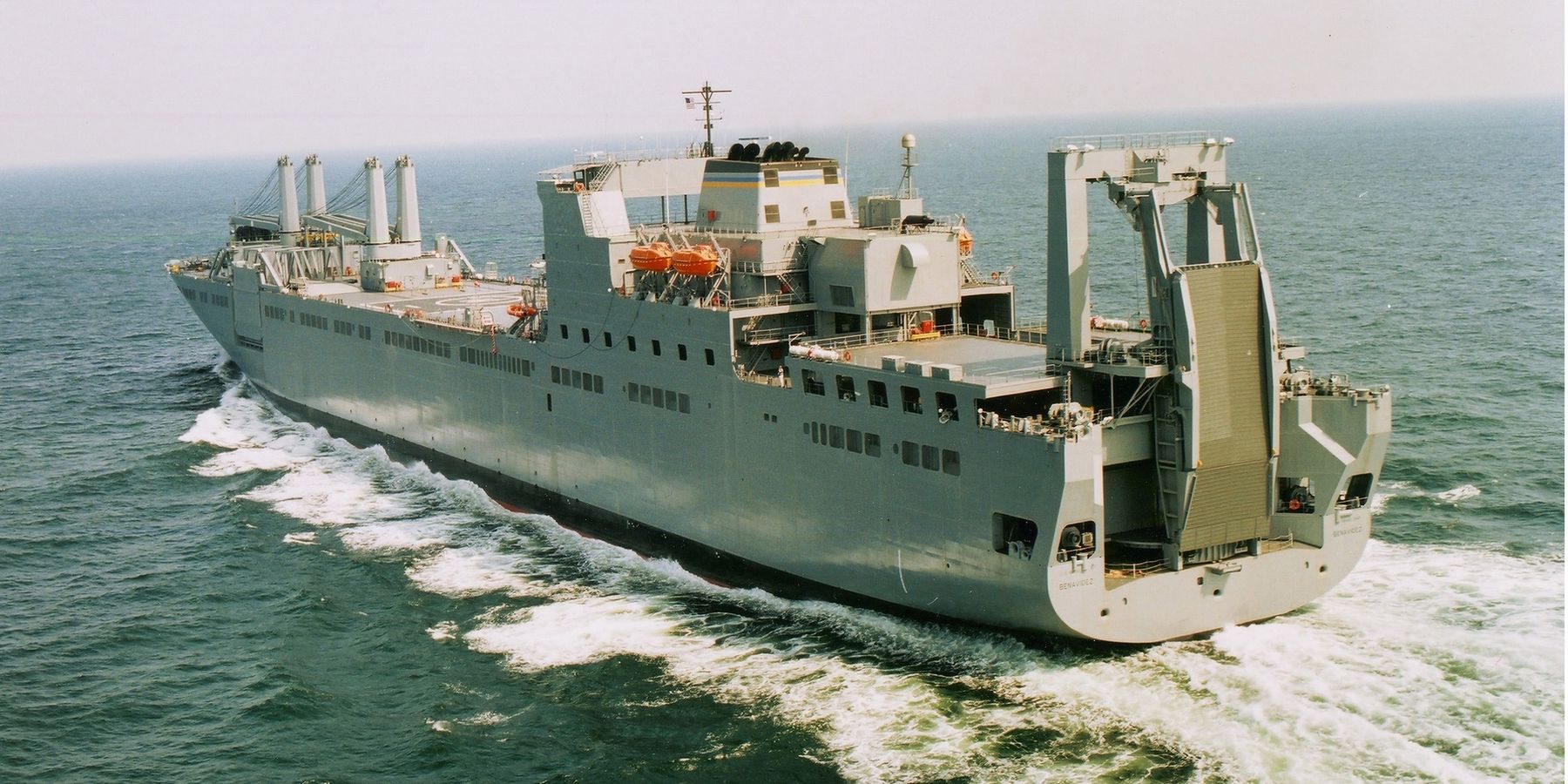The Army and Navy ships that have left the U.S. for a massive humanitarian aid project in Gaza are still making their way across the Atlantic, with two still at ports in Florida and Virginia. It will likely take until mid-April for the vessels to reach Gaza and begin building a temporary causeway to facilitate the entry of life-saving aid into the strip.
Looking at real-time satellite imagery tracking military vessels, it looks like the USAV Gen. Frank Besson Jr., an Army support vessel that left Fort Eustis, Virginia, on March 10, has been moored and presumably refueling at a port in the Azores, Portugal, since Friday. It is at the half-way point between the U.S. and its final destination of Cyprus (nearly 5,000 nautical miles total). At an average speed of 10 knots, its journey will take nearly two more weeks, depending on weather conditions, once it gets going again.
The rest of the vessels are behind and, as of Tuesday, halfway across the Atlantic, though they can travel at slightly higher speeds than the Besson. They include the Army support vessels Loux, Matamoros, Monterrey and Wilson Wharf, which are all traveling together and were between Bermuda and the Azores Tuesday morning.
They all left U.S. ports around March 15. They are carrying modules and equipment to build the “trident” causeway — about 800 by 1200 feet — which will be anchored at the beach in Gaza to unload humanitarian aid.
The USNV Roy Benavidez, which, once in place, will help construct the floating pier and serve as a “roll on, roll off” facility two miles off the coast of Gaza, is the fastest of all the military vessels and is now ahead of the smaller Army landing craft on their way to the Azores, even though it left Newport News, Va., on March 21. When complete, aid will be ferried from Cyprus to the floating pier and then to the causeway at Gaza.
Meanwhile, two other Navy vessels that will be assisting with the floating pier, the USNSs Lopez and Bobo, are readying and still docked in Navy ports at Jacksonville and Norfolk respectively. Once on their way these particular vessels will take at least two weeks to reach Cyprus, depending on the weather and refueling at the Azores.
All told these vessels (carrying about 500 U.S. military personnel) won’t be realistically building anything until mid-April, which appears to be in line with a May completion date for the pier and the causeway. Considering that, according to experts, Gazans will be fully in the throes of famine by then, it is still hard to contemplate why the Biden administration has backed the massive JLOTS project instead of ratcheting up pressure on Israel to let in the thousands of trucks of aid that are stopped at borders and checkpoints.
The Pentagon has not returned calls regarding whether the military has hired contractor Fogbow to engage in the logistics on the beach, as the Biden administration insists there will be no boots on the ground. The Times of Israel reported a day ago that Fogbow, which is led by recently retired U.S. Special Forces, Marines and intelligence officers, has already been hired for the job and that the Israel Defense Forces will likely handle security at the aid staging areas. This, too, has yet to be confirmed.
Some are already questioning whether the U.S. military operation will be used to assist a massive refugee camp at the beach once the fighting begins in Rafah. Israel insists the millions of people now sheltering in the city will have to evacuate. The Pentagon has not yet said where the causeway and operations will take place. Stay tuned.
- Alarming lack of detail in military's Gaza aid project ›
- Mission creep: Will pier become a beachhead for US in Gaza? ›
- Aid workers killed, casting shadow over US pier project | Responsible Statecraft ›
- Military pier project in Gaza could be 'on ice' | Responsible Statecraft ›
- American guns are going to Gaza | Responsible Statecraft ›
















